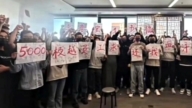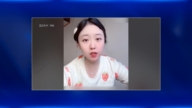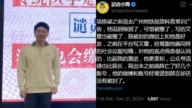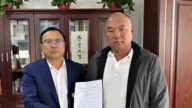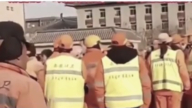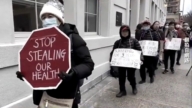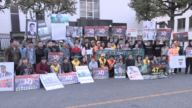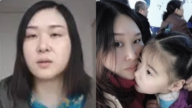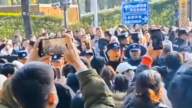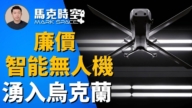【新唐人2014年09月02日讯】8月30号,中国大陆70名律师重回两年前一举奠定“死磕派”律师地位的贵阳,准备在那里召开“小河案两周年暨冤案申诉研讨会”。不过,律师们不仅被跟踪、被刁难,还有多人遭到了暴打,甚至被抓。律师们说,当局又一次表演了什么是“黑社会式管理”。
“小河案”又叫 “黎庆洪案”,因为案件审理地点在贵阳市的小河区而得名。这个案件由于耗时长,被告众多,尤其是控辩双方激烈对抗,引发社会关注,被称为“贵州打黑第一案”。
2010年2月,身家过亿的贵阳市第十二届人大代表黎庆洪,以“组织、领导黑社会罪”被贵阳市中院一审判处有期徒刑19年。黎庆洪不服,提出上诉。
前年1月9号,“小河案”第二季在贵阳市小河区法院首次开庭。80多名律师为40多名被告人在小河区法院激辩一个多月。其中,有律师当庭警告主审法官,也有20多名律师被警告、训诫,4名律师被逐出法庭。最后,律师们迫使“小河案”公诉人在法庭上放弃举证、放弃质证、放弃辩论。但小河法院依然强行宣判涉黑罪成立。
但外界把“小河案”、“李庄案”、“北海案”、“常熟案”,并称为“死磕派”律师的四大著名战役。
山东律师赵永林表示,来自全国的几十名律师,本来打算用两天的时间,来讨论两年“小河案”中,律师在辩护过程中的得失。
山东律师赵永林:“但是当我下了飞机,还没有报到的时候,就发现我们的车辆被莫名其妙的跟踪。据同行提醒,就是当地的公安的国保在跟踪我们。而且明确的给我们说,你们这个会不能开。你硬要开的话,我们保证让你开不成。”
事实上,这次会议的确处处受到干扰。
首先,是会务方预定的4个会址,都因为受到压力之后毁约。到了召开会议的30号,第5个会议场所的水管又“突然爆裂”。
律师们被迫“遵照”贵阳市司法机关的建议,去了有名的黔灵公园。当他们在黔灵湖边小亭的水泥平台上坐下,还没有做完自我介绍的时候,警察就来了。警察声称接到群众举报,有人聚集,需要调查。其次,除了警察的跟踪,还有几十个短平头、着休闲装,背挎包的人,一直在律师周围。
最后,在11点过后,便衣和想要离开的律师们发生了冲突。来自北京的蒋援民律师在推特上披露,是一个自称警察身份的女人故意起哄,挑起了便衣殴打律师。
赵永林:“我不知道她是什么身份,肯定是一个公务员或女警察,穿一个便衣。当时就是她报的案。她说,她亲眼听到这个人在‘传销’,我们拉她加入‘传销’,她不同意,然后我们就打她。”
在混乱中,长沙的刘凯律师遭到围殴,差点被抬走,跳入黔灵湖后才得以脱身。但伍雷律师助理黄佳德实习律师被带走,刘凯、葛永喜、张锦宏、李和平律师被打伤。江天勇、王兴、胡贵云等14名律师宣布绝食,抗议这种暴行。
即使经历了种种不顺利,律师们在下午,仍然就有效刑事辩护,和冤案申诉经验进行了交流。
赵永林律师透露,晚上律师们还到派出所,抗议这种暴行,要求立即释放黄佳德,并对打人的凶手进行查处。最后,迫于律师和网上的压力,当地警察释放了黄佳德。但等律师们回到了宾馆后,服务员告诉他们,明天必须退房!
《东网》专栏作者东步亮撰文说“中国需要死磕派律师”。他指出,“民主法治其实是靠汗水、泪水、自由、鲜血、甚至生命换来的”。
采访/朱智善 编辑/宋风 后制/钟元
Over 70 Lawyers Oppose Brutal Violence During Xiaohe Seminar
On Aug. 30, more than 70 lawyers went to Guiyang City,
Guizhou Province.
They were going to hold a seminar to discuss a case
that happened two years ago in Xiaohe district, Guiyang.
However, they were followed by plainclothes police,
several were beaten and even arrested.
They said the regime showed again
how a gang society is managed..
The Xiaohe case was also called the Li Qinghong case,
It took place in Xiaohe District, Guiyang City.
Many people knew about it, because it took a long time,
especially as the two sides intensified the debate,
arousing the public concern.
It was called the no.1 case of “fighting so-called gang group”
in Guizhou.
In Feb. 2010, billionaire Li Qinghong, representative of
12th national people’s congress in Guiyang City,
was sentenced by Guiyang Intermediate Court to
19 years imprisonment, accused of
“organizing and leading a gang group”.
Li Qinghong was against the verdict and appealed.
On Jan. 9, 2012, the second hearing was held
in Xiaohe District Court.
More than 80 lawyers defended 40 defendants
for over a month.
Amongst them, four lawyers were removed from the court.
In the end, prosecutors withdrew their testimonies,
questions and debates.
Yet, the court still charged the defendants of gang crimes.
The public classified the Xiaohe case,
the Li Zhuang case,
the Beihai case and the Changshu case
as four major battles of lawyers.
Shandong lawyer, Zhao Yonglin, says that tens of lawyers
from different cities initially planned to use two days
to share their experiences of loss and gain in court.
Zhao Yonglin: “When I left the airport I found our car
was unreasonably tailed.
My colleagues reminded me that local national security
personnel were following us.
The national security personnel told us that our meeting
won’t continue.
If we insist, they will make sure we can’t do it.”
This meeting indeed was interrupted all the time.
First, four venues were forcibly cancelled.
On Aug. 30, on the meeting day, the water pipe
of the fifth venue suddenly burst.
The judiciary of Guiyang suggested the lawyers use
Qianling Park to hold the meeting.
When they went to the place sitting in a pagoda
near the Qianling Lake, police arrived while the lawyers
were just about to introduce each other.
The police said they received residential complaints
that a crowd had gathered, so they needed investigate.
Apart from being followed by police, tens of plainclothes men
with short hair, casual clothes and carrying backpacks
appeared near lawyers.
After 11am, the plainclothes clashed with the lawyers.
Jiang Yuanmin, lawyer from Beijing tweeted that
a woman who claimed a police identity deliberately
caused trouble.
Then plainclothes started beating lawyers.
Zhao Yonglin: “I don’t know what her identity is,
she certainly is a civil servant or a police officer.
She wore plainclothes.
It was she who reported to the police.
She told police she saw we were doing Pyramid Selling,
we forced her to join in,
but because she didn’t agree was being beaten.”
During the clash, Changsha lawyer Liu Kai was beaten
by several plainclothes, they nearly carried Liu away.
Liu jumped into the lake and escaped.
Lawyer Wu Lei’s assistant was also taken away.
Four other lawyers including Li Heping were injured.
14 lawyers including Jiang Tianyong announced
a hunger strike against the brutal violence.
Although the lawyers had been through these troubles,
they still held the meeting in the afternoon.
They exchanged their views of debates
and appeals in cases of injustice.
Zhao Yonglin reveals that lawyers went to the police station
in the evening to protest the violence.
They requested the immediate release of Huang Jiade,
investigating the violence.
Under pressure of lawyers and online opinion,
the local police released Hua Jiade.
However, after they returned to their hotel,
the receptionist told them they must check out next day.
Dong Buliang, writer of on.cc said China needs lawyers
that can fight to the end.
He pointed out that democratic law is exchanged
for sweat, tears, freedom, fresh blood and lives.”
Interview/ZhuZisan Edit/SongFeng Post-Production/ZhongYuan


